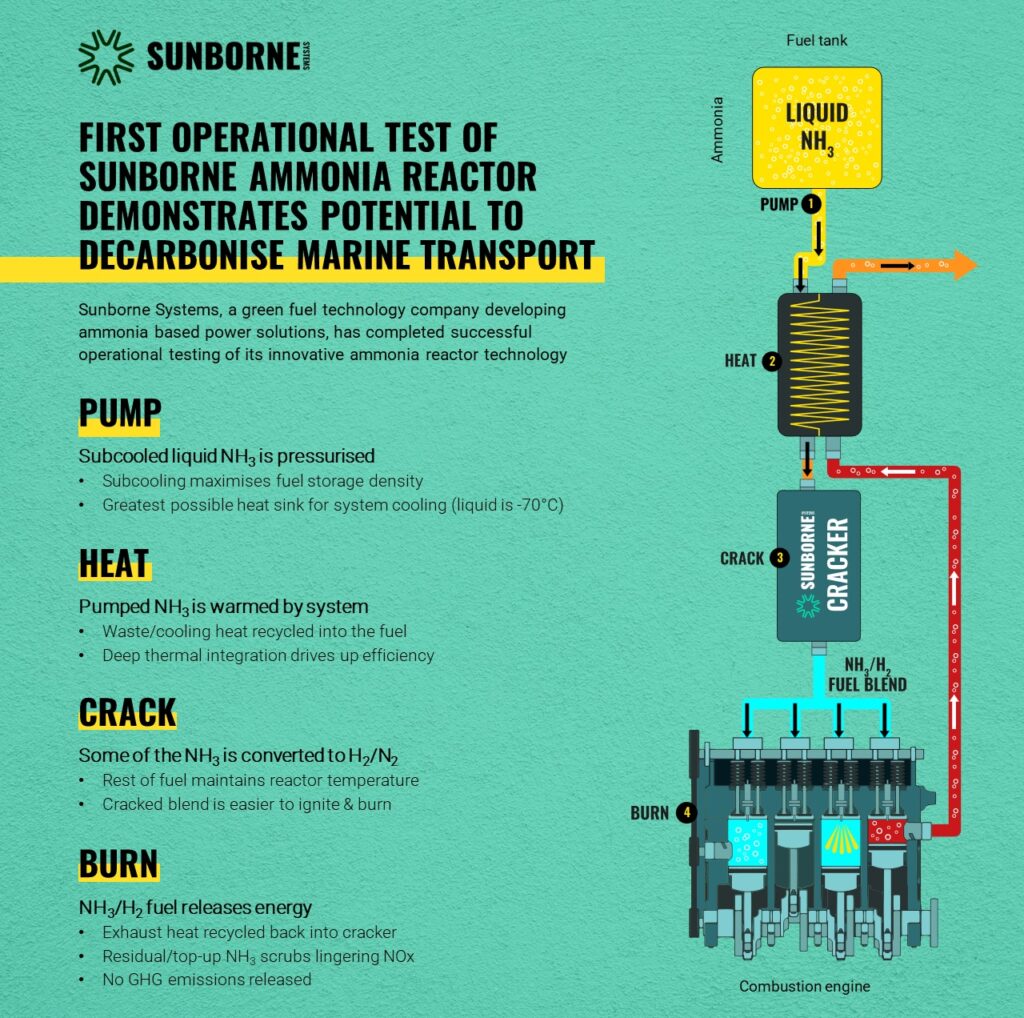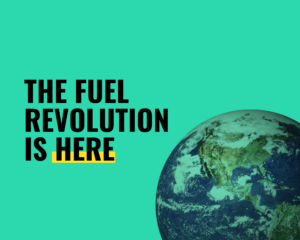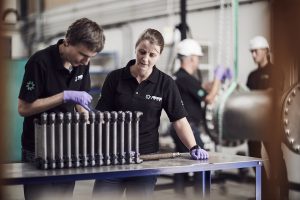- Sunborne Systems is a UK-based green fuel technology company, founded by Reaction Engines, the UK Science and Technology Facilities Council and Kiko Ventures, to develop an innovative ammonia-reactor technology that will enable the zero-carbon conversion of existing power systems in hard-to-abate sectors.
- The test programme, undertaken at Reaction Engines’ test facility at the Culham Science Centre, Oxfordshire, exceeded all expectations, demonstrating the successful operation of the Sunborne ammonia reactor technology at a scale commensurate with standard internal combustion engine (ICE) architectures.
- The successful test programme underlines the near-future potential of Sunborne ammonia reactor technology to power light vehicles and mobile generator units, with a clear route to scale up for maritime and industrial applications.
Sunborne Systems Ltd. (“Sunborne”) is a green fuel technology company, based in Oxfordshire UK, which is developing ammonia-based power solutions to decarbonise heavy transport and high-energy industrial applications. Today, it announces the successful operational testing of its innovative technology at a scale commensurate with automotive internal combustion engines.
Sunborne Systems was founded in 2021 by Reaction Engines, the UK Science and Technology Facilities Council (STFC) and the cleantech venture investor Kiko Ventures with the purpose of developing lightweight, compact ammonia reactor technologies for use in hard-to-abate applications such as marine transport. Sunborne’s ammonia reactor technology combines Reaction Engines’ thermal management and heat exchanger technology with the UK Technology & Science Facility Council’s expertise in catalyst chemistry, as well as drawing on the expertise in both organisations in system design and optimisation for a range of applications. Sunborne’s ammonia reactor technology targets the retrofitting of existing fossil fuel-powered propulsion systems and energy generators and offers a significant advance in decarbonisation efforts.
The core of Sunborne’s technology is the reactor, which real-time transforms stored liquid ammonia into an optimised blend of hydrogen, nitrogen and uncracked ammonia. The test programme has demonstrated the ability to produce a fuel blend sufficient to power a 56kW (75bhp) engine, equivalent to a small vehicle or mobile generator unit. The test results demonstrated a high degree of thermal efficiency and showed the potential for the architecture to be scaled into higher energy output internal combustion engine systems and other industrial power applications. The test programme was undertaken at Reaction Engines’ test facility at the Culham Science Centre, Abingdon, Oxfordshire.
Dr James Barth, co-founder and CEO of Sunborne Systems, said:
“We are delighted that our test results have exceeded our expectations and showcased the significant potential of our ammonia cracking technology. The potential impact of our technology is unprecedented, with significant potential to partner with major engine OEMs and bring a fuel revolution to drive the transition to net zero.”
“Ammonia is already a widely traded commodity and will be traded even more in the future as hydrogen production facilities come online around the world. While our initial focus is on the maritime industry, which is leading decarbonisation of internal combustion engines, our technology could easily be applied to adjacent industries such as power generation and large heavy equipment, with significant potential for use with gas turbine technology in the future.”
Professor Bill David, co-founder and CSO of Sunborne Systems, said:
“Ammonia will be central to the net zero transition for the simple reason that it does not contain carbon. And, importantly, no carbon atom is involved in our keystone technology that converts carbon-free stored energy to an optimised fossil-free fuel.”
“This test confirms that our technology operates at an already relevant scale with existing engine architectures. It is also a technology that asserts that we do not need to turn our backs on the existing two billion internal combustion engines, hundreds of thousands of gas turbines and gigawatts of industrial burners worldwide. With around forty million tons of existing global ammonia excess capacity, our technology can immediately help make worldwide inroads into the transition to zero-carbon emissions in the transport and power sectors.”



